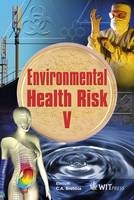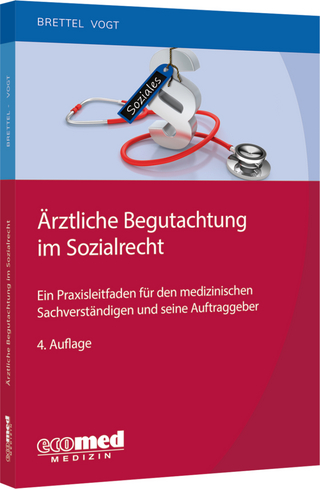
Environmental Health Risk
WIT Press (Verlag)
978-1-84564-201-3 (ISBN)
Health problems related to the environment have become a major source of concern all over the world. The health of the population depends upon good quality environmental factors including air, water, soil, food and many others. The aim of society is to establish measures that can eliminate or considerably reduce hazardous factors from the human environment to minimize the associated health risks. The ability to achieve these objectives is in great part dependent on the development of suitable experimental modelling and interpretive techniques that allow a balanced assessment of the risk involved, as well as suggest ways in which the situation can be improved. Environmental Health Risk 2009 is the Fifth International Conference in this successful series and the topics covered include Air pollution; Water and soil quality issues; Risk prevention and monitoring; Ecology and health; Food safety; Toxicology analysis; Occupational health.
Section 1: Air pollution Risk analysis of Volatile Organic Compounds using their indoor diffusion characteristics; Indoor concentrations of PM2.5 in day care centres; Study of the dispersion process of vehicular emissions at a specific site in Belo Horizonte using numerical simulation; Health impact assessment of exposure to transport emissions in Flanders: methodology study; Size distribution and elemental composition of ultrafine and nanoparticles; Air pollution monitoring and evaluation framework for South Africa: prioritizing vulnerable communities; Contribution of airborne fine particles containing Cryptomeria japonica pollen allergens to airborne organic carbonaceous aerosols during a severe pollination episode; Air pollutant deposition effect and morphological change of Cryptomeria japonica pollen during its transport in urban and mountainous areas of Japan; Health impact assessment of exposure to inhalable particles in Lisbon Metropolitan Area; Respiratory deposition of atmospheric aerosols Section 2: Water and soil quality issues Influence of the vinasse application in sugar cane fields in Patrocinio Paulista, Sao Paulo State, Brazil; Health risks due to the presence of lead (Pb) and copper (Cu) in a coastal area of Tabasco, Mexico; Arsenic polluted groundwater: epidemiological study and efficient removal method; Emergent chemical in sewage treatment plant: di-(2-ethylhexyl) phthalate; Dissemination of potentially pathogenic bacteria into the environment Section 3: Risk prevention and monitoring Depleted uranium and public health risks in the Balkan region; Environmental radiation monitoring at the areas of the spent nuclear fuel and radioactive waste storage in the Russian Northwest; Environmental health damage factors assessment in brownfield redevelopment; Prevention through design in the health care sector; Environmental management complexities and rumours impeding the effective application of scientific research and results to address; possible health risks in the West Rand gold mining region of South Africa; Preventing health water related risks in growing megacities: the Southern part of Mexico City; Thermal modelling of the human eye exposed to infrared radiation of 1064 nm Nd:YAG and 2090 nm Ho:YAG lasers; Novel developmental immunotoxicology for monitoring the risk assessment for human populations from environmental pollution: alternative methods in vitro Section 4: Ecology and health Environmental remediation of nuclear legacy sites in the Russian Northwest: regulatory approach; Ecology and health in risk analysis of polluted soils; Contents of natural radium-226 and lead-210 in foods produced within the Russian territory Section 5: Food safety Stochastic risk assessment of Listeria monocytogenes; Regulation and control of radionuclide contents in foods in the Russian federation; A novel HACCP system supported by QMRA for increased food safety; Intake of man-made radionuclides due to food consumption by the population of different age groups; Microbial growth modelling under variable temperature conditions Section 6: Toxicology analysis Toxicity assessment of chlorinated secondary effluents by the Vibrio fischeri bioluminescence assay; Allometry displayed in the case of response to single exposure to arsine and its use in the extraction of the 0% lethal level Section 7: Occupational health Exposure assessment: the influence of environmental monitoring methodology; Radioactivity in foodstuffs after the Chernobyl accident - 20 years research; Methodology and results of the investigation monitoring in the Russian NPP vicinity; Diurnal variation of salivary cortisol and amylase activity in fatigued state; Occupational exposure to fungi in gymnasiums with swimming pools; Occupational health and safety management systems: comparison between BS OHSAS 18001: 2007 and Italian Decree 81/2008
| Erscheint lt. Verlag | 15.9.2009 |
|---|---|
| Reihe/Serie | WIT Transactions on Biomedicine and Health ; No. 14 |
| Zusatzinfo | Illustrations |
| Verlagsort | Southampton |
| Sprache | englisch |
| Maße | 155 x 230 mm |
| Themenwelt | Medizin / Pharmazie ► Medizinische Fachgebiete ► Arbeits- / Sozial- / Umweltmedizin |
| Naturwissenschaften ► Biologie ► Ökologie / Naturschutz | |
| ISBN-10 | 1-84564-201-5 / 1845642015 |
| ISBN-13 | 978-1-84564-201-3 / 9781845642013 |
| Zustand | Neuware |
| Haben Sie eine Frage zum Produkt? |
aus dem Bereich


